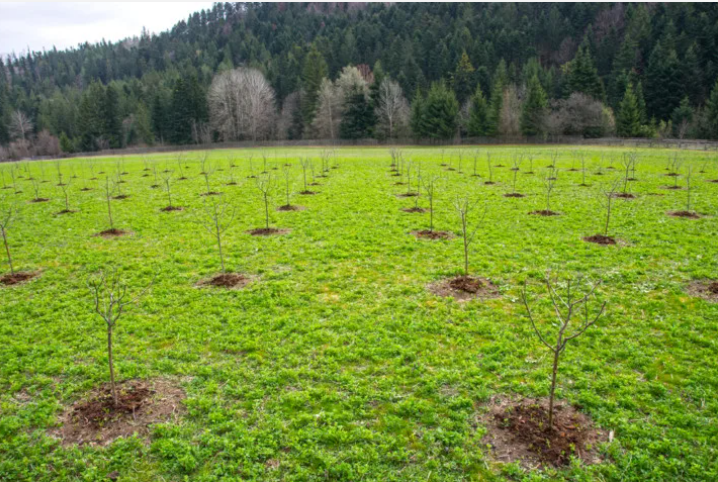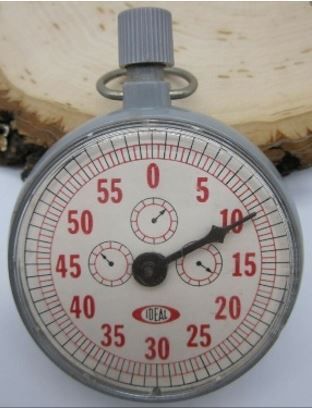By Tom E. Pearson - 2020
I was handed down a minibike from my older brothers after they left home. By hand-me-down I mean that the engine was shot, the brakes were missing, and the frame was broken. I was left with the bones to rebuild my own minibike. It was a 1970 mail order Heath-Kit Boonie minibike. My older brothers could buy it because they were making their own money milking cows morning and night. This was their first large purchase since taking over that chore completely. I was 7 years old when it arrived by truck to the gleaming eyes of Terry and Danny. The 5 hp. Briggs and Stratton engine arrived in one box, the fat oversized wheels in another and the frame in the largest box.
My brothers put it together with included instructions in 2 days in our washroom and I watch the excitement of them as they took it for a ride. Minibikes are very fun and useful on a farm. It can be used to travel the mile to the back pastureland to get the cows in the evening or the half mile down our lane to pick up the mail. However, it was most fun riding between the 2,000 sapling walnut trees we planted with our father in our front field. My brothers ran the minibike all over the farm for years until it would not run anymore and then abandon it when they were able to drive cars. This is where I inherited the minibike. In disrepair needing a new engine with a broken frame. My father helped me get the minibike repaired and it was the best thing I had on the farm by far. The broken frame was welded together however the chainguard was still missing and I didn’t even have brakes except for my flintstone foot brakes.
County Fair and an engine to go
Every year our family would go to the Dark County Fairgrounds in Greenville, Ohio in the summer where my Dad would give each of us $5 to ride the rides, play the games and eat the food, while Mom and him watched the shows and the animals. Greenville also had a farm and tractor supply store and one year on the way to the fair ground my father said, “Let’s stop in there and see if they have an engine for the minibike.” I said “Yes”. I was excited as I walked into the store. Farm and tractor supply stores had many cool things but today it was about engines. My Dad told me that he would only buy a 3.5 horsepower engine since he believed that the “5 horsepower engine is what tore up the minibike anyway. It had too much power”. I was slightly disappointed, however an engine...was an engine. We paid $79.98 for the 3.5 HP Briggs & Straiten engine and headed off to the fair grounds. I could not believe my luck, the county fair and an engine for my minibike in the same day. It doesn’t get any better for a boy 11 years old.
5 Cents for every Sapling Planted
My father paid us 5 cents for every tree sapling we planted in our front field. He somehow got free saplings from the government as part of a green up America program and decided to plant them on the farm. In a couple of years, they grown to be 3 or 4 feet tall, and my father had dreams of 18-inch diameter walnut trees he could harvest in his retirement. I found it a playground for my minibike by making a racecourse trail through and around the sapling’s trees.

I loved racing my bike through the trees making each turn sharper and racing against my cheap spring wound mail order stopwatch for the best time.

Sprocket Fingers
The minibike wasn’t all fun. The transmission chain from the the transmission to the back wheel would come off its sprocket from time to time due to vibrations from the engine loosening the transmission bolts causing misalignment. It’s a simple fix when you’re in the field. Turn off the motor and rechain the sprocket by hand. On my race course one day racing the stopwatch my chain came off. I was too much in a hurry to turn off the engine and decided to rechain the sprocket even though the engine was on. It would be ok if the motor was kept at slow idle speed and the clutch didn’t kick in. While placing the chain over the sprocket the clutch kicked in and took my hand into the socket tearing the flesh of 3 of my fingers and parts of my hand. I looked at my hand and saw a mangled mess of flesh and blood. I threw down my minibike and ran to the house. At the house, I put my hand under the faucet to see the damage. It was painful to feel the water rolling over the wound and I could see through the black grease that it wasn’t as bad as I thought. No bones were broken, and I was not bleeding profusely. I immediately wrapped it up with gauze and a stretch bandage without cleaning the grease out of my wound or putting hydrogen peroxide on my hand.
First aid farm style
Hydrogen peroxide was the gold standard of bacterial infection prevention on all farms in the 1970s. This is before anti-bacterial creams and sprays of today. All farmhouses had a large bottle of it in their medicine cabinet. One would pour peroxide into the wound and let it sizzle. The more it sizzled the more it was killing the bacteria. Oh yes it would hurt but that was good. One would pour it on the wound periodically until the sizzling subsided. That meant there was no more bacterial to be killed. I decided to forgo that treatment as my wound hurt enough and the gauze covering it up made it feel so much better. My Mom wanted to look at it however I told her “No, it is fine” and she left me alone.
At school the next day I took the gauze and stretch bandage off in the bathroom to rewrap the wound and a student saw my black greasy torn flesh. He told the teacher and the teacher took me to the nurse where she properly cleaned and took care of the wound. I am not sure if and how I would have cleaned that wound or if it would have gotten infected. Teachers and nurses in farm communities understood how farm boys behaved. They were wild and generally not overly protected or closely supervised by their parents. Farm boys learned by doing and learned by failing and if they didn’t die or get maimed it was a good lesson and it made them stronger. The shortcut I took by not turning off the engine to my mini-bike caused me to get hurt however it didn't kill me. That is one lesson this farm boy learned growing up.


Member discussion: